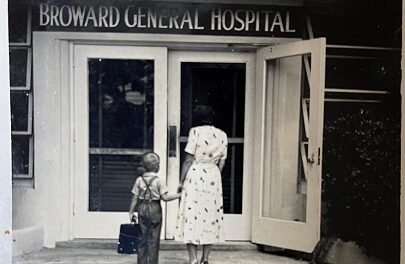.jpg) One of the questions that our hospice teams often receive from physicians, care facilities, hospitals and community partners who care for patients in the final stages of Alzheimer’s Disease and dementia is, “I’ve taken care of this patient for years…why should I refer her to hospice now?”
One of the questions that our hospice teams often receive from physicians, care facilities, hospitals and community partners who care for patients in the final stages of Alzheimer’s Disease and dementia is, “I’ve taken care of this patient for years…why should I refer her to hospice now?”
It’s a legitimate question: What services and solutions can hospice provide to Alzheimer’s patients that are not readily available from non-hospice healthcare professionals?
The answer lies in VITAS Healthcare’s goal of supporting both a terminally ill patient and the family members and caregivers who have experienced the challenges and phases of their loved one’s disease, symptoms and decline.
Hospice: Dual focus on patients and family/caregivers
In the case of Alzheimer’s and other forms of dementia, family and caregiver involvement can stretch to 10 years or more before their loved one becomes eligible for hospice. That’s why one of the hallmarks of hospice care is collective support for the patient, family members and caregivers.
The primary focus, of course, is end-of-life care for the patient. Alzheimer’s-related symptoms can require significant levels of clinical care for organ failure, restlessness, pain, recurrent fevers, pressure wounds, urinary tract infections and more.
Likewise, family members and caregivers are often exhausted by the time a hospice referral is made, especially if their loved one’s gradual mental and physical decline has taken place over many years. An interdisciplinary hospice team provides extra layers of much-needed spiritual and psychosocial support.
Hospice care at home breaks the readmission cycle
Knowing that Alzheimer’s patients are more likely to become anxious, agitated and restless when they’re removed from the familiarity of home, hospice teams provide services at home to avoid the cycle of admission-discharge-readmission among hospital, nursing home and home. Hospice care provides the support that keep patients and families together at home, where the majority of patients say they prefer to die.
A hospice physician and nurse help explain the trajectory of the disease so that family members can feel comfortable with their decisions and know what to expect during a loved one’s decline. At VITAS, caregiver support also includes 24/7 Telecare access to hospice nurses to answer questions or resolve crises, and temporary shifts of Intensive Comfort Care® at the bedside for up to 24 hours, when medically necessary, to manage symptoms and pain at home.
Comfort-focused support from a chaplain, aide, music therapist and volunteer helps families remain focused on quality of life at home. A social worker and bereavement specialist are available to help with funeral planning, memorials and grief support that continues for a minimum of 13 months after a loved one has died.
By managing symptoms and providing comfort care at home, hospice can alleviate caregiver stress, provide optimum care to patients, and help families remain focused on quality of life throughout their loved one’s final months, weeks and days. Many families tell us, “We wish we had known about hospice sooner.”
It’s important for referring primary care physicians and specialists to know that Alzheimer’s patients can be referred to hospice as soon as they have a terminal diagnosis of six months or less, if the disease runs its natural course. Early hospice referral supports quality of life and reduces hospital/ED readmissions.
We also encourage referring physicians to remain as involved as they wish in the VITAS hospice care plan, a decision that extends the relationship so that patients, family members and caregivers receive the care, services, compassion and dignity they deserve at the end of a long journey together.


























